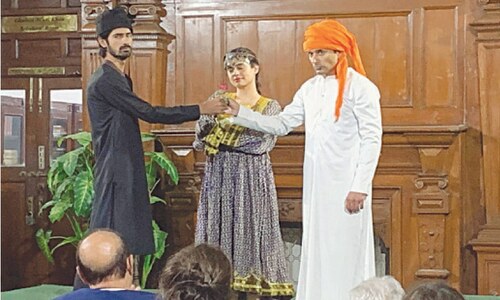Columbia University historian Mannan Ahmad Asif discussed two important historical treatises -- Chachhnama by Ali Kofi and Tareekh-i-Farishta by Muhammad Qasim Farishta at a session titled ‘Text, Pretext, Context’ at the LLF on Saturday.
Mannan terms Chachhnama a political theory text that was written by Ali Kofi at Uch Sharif , now a dusty town in south Punjab, that was once a centre of learning.
The historian says what makes the book stand out is that it gave the historical account of Hindustan before it was invaded by Muhammad Bin Qasim. He regretted that being a product of educational system under Zia regime, many like him were taught distorted history and thought there was no history of the pre-Islamic India.
He says that many historians were held hostage by borders of the countries they belonged to, that compromises their work.
Mannan says the text of Chachhnama entered colonial historiography around 1799-1800 and it was cited by the author of Tareekh-i-Farishta who uses it to tell the story of arrival of Islam in Sindh and Sindh’s centrality to political history of Indian sub-continent. It was later translated into European languages. He says its text was misread, misquoted and misinterpreted as it tells the story of a kingdom based in Sindh prior to the polity established by Muhammad Bin Qasim. It tells the story of two young rulers coming to power -- Chachh after whom it was named and the other Muhammad Bin Qasim. However, it later became important for the agents of East India Company, who were interested in conquest of Sindh by Islam. They were very interested in the military conquest of Islam and the oriental despotism as it suited their project of amassment.
He says the British colonisers used some excerpts translated from Chahhnama containing incidents of destruction of temples by the Muslim invaders and one account of conversion and violence, to say “look here are conquering, invading Muslims, here is primordial violence that happened in the Indian sub-continent.” The historian says that while reading Chahhnama he did not allow himself to be influenced by the divisive views of the British colonisers, who highlighted the differences between the Muslims and Hindus.
Published in Dawn, March 20th, 2022













































Dear visitor, the comments section is undergoing an overhaul and will return soon.